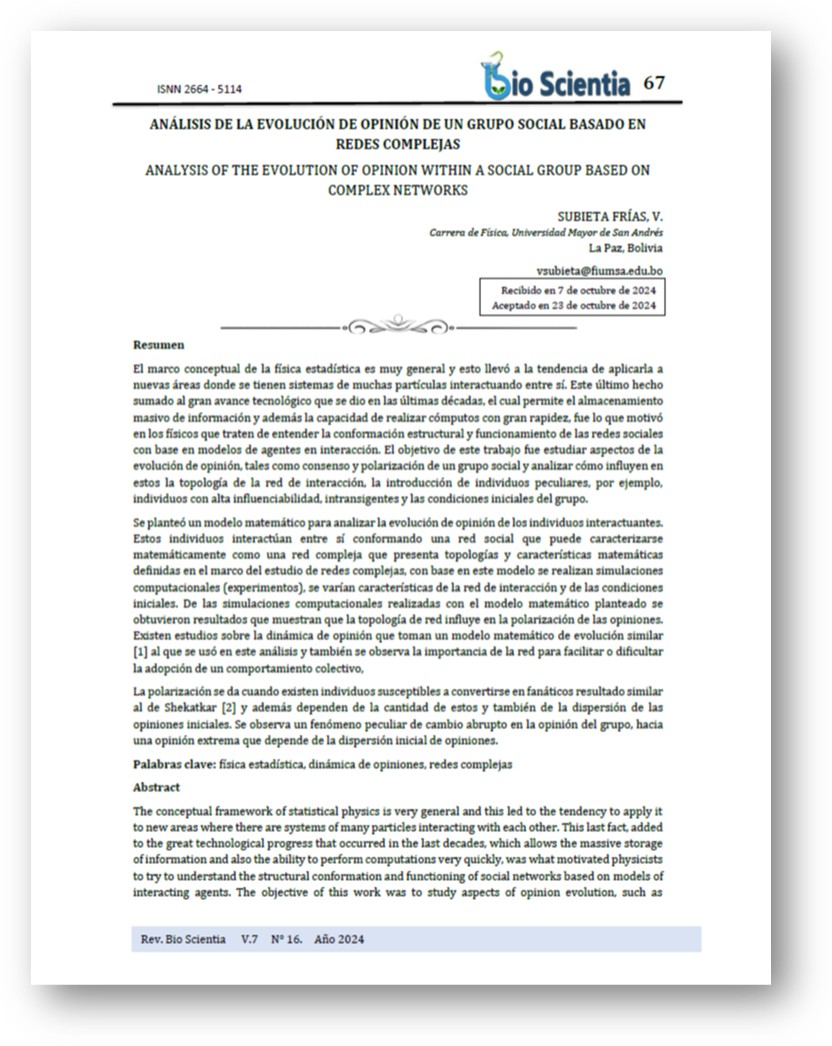ANALYSIS OF THE EVOLUTION OF OPINION WITHIN A SOCIAL GROUP BASED ON COMPLEX NETWORKS
Keywords:
statistical physics, opinion dynamics, complex networksAbstract
The conceptual framework of statistical physics is very general and this led to the tendency to apply it to new areas where there are systems of many particles interacting with each other. This last fact, added to the great technological progress that occurred in the last decades, which allows the massive storage of information and also the ability to perform computations very quickly, was what motivated physicists to try to understand the structural conformation and functioning of social networks based on models of interacting agents. The objective of this work was to study aspects of opinion evolution, such as consensus and polarization of a social group and to analyze how they are influenced by the topology of the interaction network, the introduction of peculiar individuals, for example, individuals with high influenceability, intransigent individuals and the initial conditions of the group.
A mathematical model was proposed to analyze the evolution of opinion of interacting individuals. These individuals interact with each other forming a social network that can be mathematically characterized as a complex network that presents topologies and mathematical characteristics defined in the framework of the study of complex networks, based on this model computational simulations (experiments) are performed, varying the characteristics of the interaction network and the initial conditions. From the computational simulations carried out with the mathematical model proposed, results were obtained that show that the network topology influences the polarization of opinions. There are studies on opinion dynamics that take a mathematical model of evolution similar [1] to the one used in this analysis, and the importance of the network in facilitating or hindering the adoption of a collective behavior is also observed,
Polarization occurs when there are individuals susceptible to become fanatics result similar to Shekatkar's [2] and also depend on the number of these and also on the dispersion of the initial opinions. A peculiar phenomenon of abrupt change in the opinion of the group is observed, towards an extreme opinion that depends on the initial dispersion of opinions.



